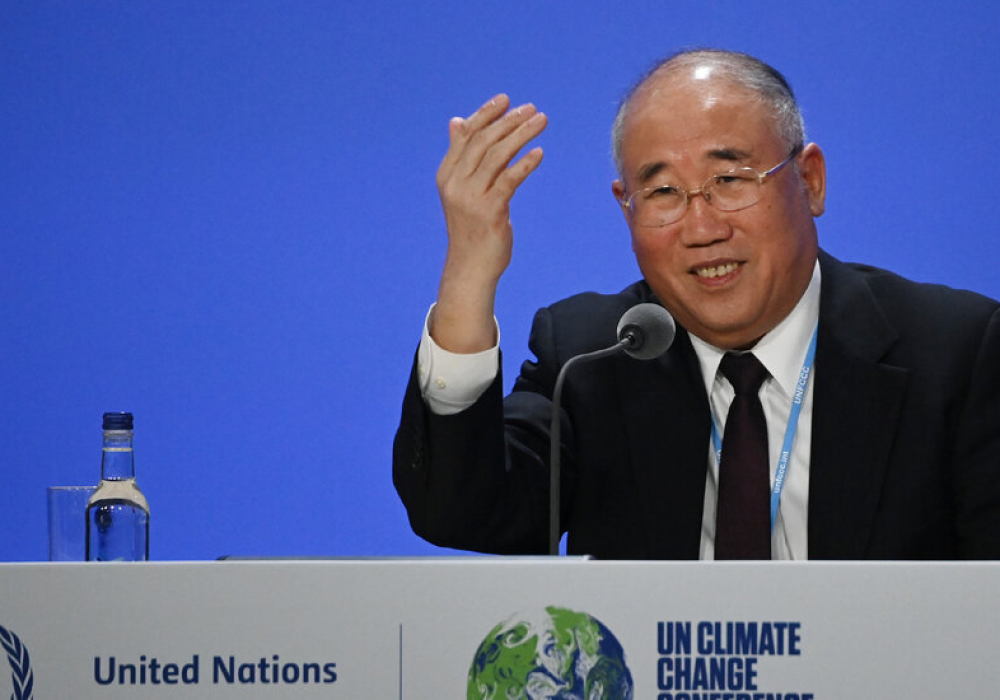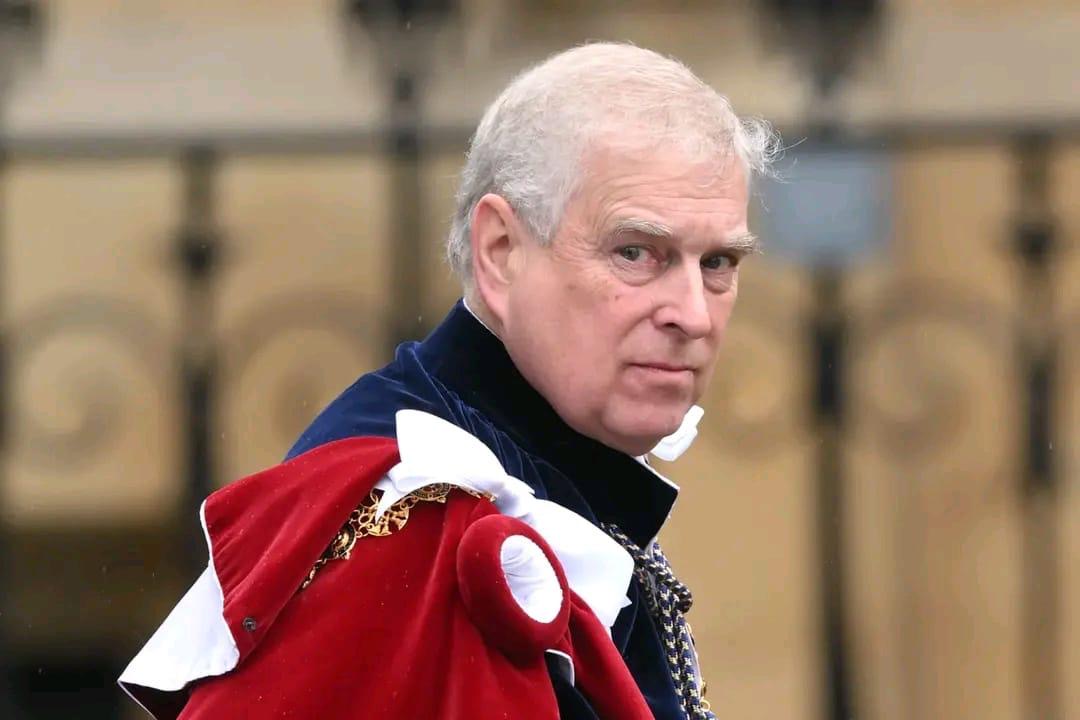GLASGOW — China’s top climate change envoy, Xie Zhenhua, apologized as he entered late for a weekend meeting at the United Nations climate summit.
“We have quite busy schedules,” Mr. Xie said, according to two people who were present for the exchange. “Especially for me, I have to meet with John Kerry almost every day.”
In an unexpected development, the United States and China on Wednesday announced in a joint statement that they will both do more to cut fossil fuel pollution this decade. The terms of the deal weren’t groundbreaking — but the fact that agreement occurred at all is notable, considering the badly strained ties between Washington and Beijing over trade, human rights, Taiwan and other serious differences.
Despite that, according to American and Chinese officials, the agreement was the product of months of meetings between Mr. Xie and Mr. Kerry, President Biden’s global climate envoy, before they arrived in Glasgow for the conference, known as COP26. The two also held near daily discussions at the summit, these officials said.
Even as Mr. Biden earlier in the summit publicly scolded President Xi Jinping for not attending in person, setting off a round of sniping from Beijing in return, Mr. Xie and Mr. Kerry continued to quietly meet to discuss whether China could increase its ambition on climate.
Over the past 10 days the two envoys, as well as their negotiating teams, met frequently in one or the other’s delegation office, windowless makeshift white rooms of thin partitions held together by metal hinges, set up in a cavernous exhibition center where the two weeks of talks are being held in Scotland.
Mr. Kerry, 77, and Mr. Xie, 72, have known one another for more than 20 years and both came out of retirement to take on their country’s top climate positions. Speaking through masked interpreters, they talked about their grandchildren, Mr. Kerry’s vacation home and Mr. Xie’s garden before launching into more intense negotiations about coal, methane and greenhouse gas emissions, according to a senior U.S. official who was part of the talks.
On Wednesday the world’s two largest greenhouse gas emitters sounded more like allies in the fight against climate change than fierce rivals, with both Mr. Xie and Mr. Kerry saying both nations were responsible for keeping rising global temperatures from reaching dangerous levels.
“We both see the challenge of climate change is existential and a severe one,” Mr. Xie said. “As two major powers in the world, China and the United States, we need to take our due responsibility and work together and work with others in the spirit of cooperation to address climate change.”
Tensions between the United States and China are at their highest point in years. Mr. Kerry said that he has been “honest” about concerns regarding China’s treatment of Uyghurs and other Turkic Muslims in China’s semiautonomous Xinjiang province, but said his focus has been to be “the climate guy.” He also said the two countries must work together to pivot away from fossil fuels no matter what other issues arise.
António Guterres, the United Nations Secretary General, called it “an important step in the right direction.” Laurence Tubiana, France’s former climate change ambassador, said it shows “that the two countries can cooperate to address the climate crisis.”
But experts agreed that the terms of the deal fall far short of an agreement that Mr. Kerry and Mr. Xie helped broker in 2014 in which both the United States and China jointly announced new targets to cut emissions.
That moment was groundbreaking because China, as a developing country despite its skyrocketing emissions, was exempt under the rules of the U.N. climate body from taking mandatory action to cut emissions. The 2014 deal helped spur the Paris climate agreement one year later, in which nearly 200 nations of all levels of wealth and responsibility for causing climate change agreed to act.
Wednesday’s joint U.S.-China declaration says that both countries will “accelerate the transition to a global net zero economy,” referring to the goal of net zero emissions of carbon dioxide, the most important greenhouse gas. It also calls on both countries to strengthen their emissions plan.
In addition, China agreed to “phase down” coal consumption during its 15th Five Year Plan, which starts in 2026.
However, the agreement did not extract any new pledges from China about when it will stop spewing ever-larger amounts of fossil fuel emissions into the atmosphere and instead begin to reverse course.
China has said it will stop increasing its greenhouse gas emissions before 2030, which it often refers to as the date they will “peak.” But in Wednesday’s agreement, China did not specify exactly when that would occur, and American officials have been pushing their counterparts to set a clear, earlier date.
Mr. Kerry on Wednesday said the two countries discussed the issue many times, and insisted that the new agreement pushed China in the direction of bending the curve of emissions downward soon.
Manish Bapna, the president of the Natural Resources Defense Council, a Washington-based environmental group, said the agreement was “good news.” But, he said, “If we are to hold global warming to 1.5 degrees Celsius, we urgently need to see commitments to cooperate translate into bolder climate targets and credible delivery.”
“It’s a climate truce,” said Nick Mabey, executive director of E3G, a climate change research group.
While the agreement is not a major deal for new climate action, Mr. Mabey said, it has geopolitical significance by signaling China and the United States have ended “the war of words” that has contributed to tensions at the summit.
Scientists have said that allowing global temperatures to rise more than 1.5 degrees Celsius above preindustrial levels sharply increases the risk of calamities like deadly heat waves, water shortages and ecosystem collapse. The world has already warmed 1.1 degrees Celsius.
China has resisted agreeing to a goal of keeping temperature rise to 1.5 degrees because it would require the country to make steeper and more immediate cuts than it has so far pledged.
But in a significant step, China agreed to develop a “national plan” to cut methane — a potent greenhouse gas that the country has so far not mentioned in its plans for curbing emissions.
China’s current national targets for cutting emissions, under the Paris accord, do not mention methane, the second most powerful greenhouse gas after carbon dioxide. Methane is the main component of natural gas and is also released into the atmosphere from landfills, livestock and thawing permafrost.
However, China stopped short of joining a global methane pledge that Mr. Biden announced last week, in which more than 100 countries said they would aim to cut global methane emissions 30 percent by 2030.
Speaking through an interpreter, Mr. Xie said, “There is more agreement between China and the U.S. than divergence.” With two days left in the Glasgow summit for the participating nations to put together a global deal, he added, “We hope that this joint declaration can make a contribution to the success” of the summit.













